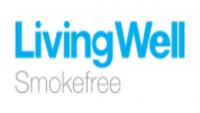Introduction
Smoking has killed nearly eight million people in the UK over the last 50 years, with an estimated two million more expected to die in the next 20 years without radical changes to smoking rates. It is the leading cause of premature and preventable death in the UK, resulting in around 78,000 deaths each year in England alone. A staggering one in two smokers will be killed by their addiction, and for each smoker killed, at least another 30 are estimated to be living with serious smoking-related disease and disability.
Although smoking prevalence overall has decreased significantly in recent decades, currently sitting at 12.7 percent nationally and 11.1 percent locally, prevalence is disproportionately more prevalent in groups with lower incomes, higher unemployment, and lower mental wellbeing, resulting in considerable inequalities within the area, which remain a priority to address.
The most deprived in society are therefore disproportionately impacted, as smoking tobacco products is a significant driver of health inequalities, with half the difference in life expectancy between people living in the most and the least deprived areas caused by smoking.
The economic costs are also substantial and include significant health care costs for treating the diseases caused by smoking, as well as the lost productivity that results from tobacco-attributable morbidity and mortality. Smoking costs society £49.2 billion per year, as a result of healthcare, productivity and social care costs, with smokers themselves losing a large part of their income to tobacco - an estimated £12 billion in England each year, or approximately £2,000 per smoker. These figures represent profound losses to individuals and their families, therefore by reducing tobacco use in the UK there would be clear financial benefits to both individuals and society.
Data from ASH’s Ready Reckoner (2024) outlines all of the economic costs of smoking to society, and demonstrates the burden faced by North Yorkshire:
| Cost in England | Cost in North Yorkshire | |
|---|---|---|
| Estimated total cost per year | £46 billion | £373 million |
| Healthcare costs | £1.89 billion | £16.8 million |
Estimated wider social care costs: Cost of unmet care needs |
£8.41 billion |
£90.9 million |
Impact of smoking on productivity: Loss of earnings Unemployment Early death Reduced gross value added due to |
£7.28 billion £1.74 billion £10.4 billion |
£18.9 million £15 million £89.5 million |
| Fire costs | £347 million | £2.99 million |
Local stop smoking service

Information about our local stop smoking service within North Yorkshire can be found on North Yorkshire Council's stopping smoking web page.
The Living Well Smokefree service offers a free personalised service for six to 12 weeks to help you quit smoking. This includes:
- access to a dedicated, local stop smoking advisor
- a supply of Nicotine Replacement Therapy - other stop smoking quit aids are available subject to availability
- weekly one-to-one sessions either in person at one of our clinics (by appointment), remotely or a combination of the two
We know that people who use this combination of support are more likely to quit for good.
The Living Well Smokefree team will meet anyone from the age of 12. If you are pregnant and would like to quit, you can access the service yourself or ask your midwife to refer you.
Contact the team and an advisor will be in touch to help make the best arrangements for you.
It is never too late to quit and when you stop smoking there are almost immediate improvements to your health:
- it reduces your risk of illness, disability or death caused by cancer, heart or lung disease
- it also helps protect the health of the people around you by reducing their exposure to second-hand smoke
Quitting could save you around £2,000 a year too.
If you are pregnant, stopping smoking is even more important. The risks of smoking during pregnancy are serious, from premature delivery to increased risk of miscarriage, stillbirth and sudden infant death.
Other useful information to help stop smoking
Nicotine Replacement Therapy
Nicotine Replacement Therapy products are free to people who do not pay prescription charges. For those who do it will cost a prescription charge per product, which is cheaper than the cost of smoking cigarettes. Buying a three-month prescription prepayment certificate is cost-effective as it covers all your prescriptions within this period no matter how many you need. This certificate costs £31.25. Get a prescription prepayment certificate on the GOV.UK website.
Free tools and tips
If you would like to try going smoke free yourself there are other free quit tools and tips available:

